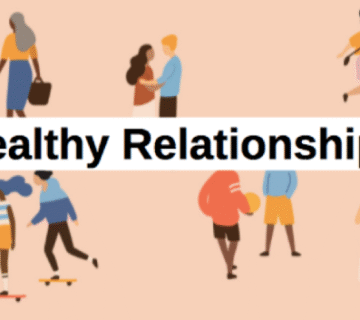Introduction: The Psychology of Romantic Chemistry
What does it really mean to be “Turn-Ons ” in a relationship? While physical attraction often gets the spotlight, true relationship chemistry involves a fascinating mix of emotional, intellectual, and psychological factors that create and sustain passion between partners.
This comprehensive guide will explore:
-
The science behind what makes someone a turn-on
-
How attraction evolves through different relationship stages
-
Why initial chemistry fades (and how to maintain it)
-
Gender differences in attraction triggers
-
Practical strategies to keep the spark alive
Understanding these dynamics can help you build a relationship where passion grows stronger over time.
What Does “Turned On” Really Mean in a Relationship?
The Four Dimensions of Attraction
Physical Connection
-
Sexual chemistry and arousal
-
Sensory responses (scent, touch, voice)
-
Body language and physical presence
Emotional Bonding
-
Feeling deeply understood
-
Emotional safety to be vulnerable
-
Shared joy and positive experiences
Intellectual Stimulation
-
Engaging conversations
-
Mental challenge and growth
-
Shared curiosity about the world
Spiritual Alignment
-
Common values and purpose
-
Mutual respect and admiration
-
Deep sense of connection
The Science Behind Lasting Attraction
Research shows healthy relationships maintain a 5:1 ratio of positive to negative interactions. Without conscious effort, initial turn-ons can fade over time.
The Neuroscience of Romantic Desire
Brain Chemistry of Attraction
-
Dopamine: Creates excitement in new relationships
-
Oxytocin: Builds long-term bonding
-
Serotonin: Influences early-stage obsession
Why Novelty Matters
Our brains respond more strongly to new experiences, explaining why new relationships feel more exciting than long-term ones.
Gender Differences in Turn-Ons
What Women Typically Find Attractive
Studies show women often value:
-
Emotional connection (89%)
-
Thoughtful gestures (82%)
-
Intellectual stimulation (75%)
-
Physical touch (68%)
*”When my partner remembers small details about my day, I feel deeply connected and turned on by his attention.” – Sarah, 31*
What Men Typically Find Attractive
Research indicates men often prioritize:
-
Physical intimacy (86%)
-
Feeling appreciated (80%)
-
Shared activities (73%)
-
Playfulness (67%)
The Evolution of Attraction in Relationships
The Honeymoon Phase (0-18 months)
-
Intense physical attraction
-
Idealization of partner
-
High excitement levels
Building Connection (18 months-3 years)
-
Emotional intimacy grows
-
Realistic view of partner emerges
-
Deeper bonding occurs
Mature Love (3+ years)
-
Comfortable companionship
-
Focus on mutual growth
-
Requires conscious effort
Why Initial Chemistry Fades (And How to Keep It Alive)
5 Reasons Attraction Diminishes
-
Familiarity reduces novelty
-
Stress impacts emotional availability
-
Neglect replaces effort
-
Unresolved conflicts create distance
-
Personal growth changes needs
5 Ways to Reignite the Spark
-
Rediscover each other regularly
-
Try new experiences together
-
Express appreciation daily
-
Increase physical touch
-
Communicate openly about needs
Maintaining Long-Term Attraction
Research-Backed Strategies
Successful couples:
-
Maintain positive interactions
-
Create daily moments of connection
-
Show regular appreciation
-
Handle conflicts constructively
Practical Techniques
-
Meaningful 6-second kisses
-
Shared gratitude journals
-
Monthly adventure dates
-
Tech-free quality time
-
Mutual growth challenges
When “Turn On Me” Signals Trouble
Warning Signs
-
Avoiding intimacy
-
Increased criticism
-
Emotional distance
-
Fantasizing about others
-
Lack of effort
Repair Strategies
-
Honest communication
-
Professional counseling
-
Recreating positive memories
-
Addressing personal issues
-
Renewing commitment
Conclusion: Cultivating Lasting Passion
Understanding turn-ons helps transform fleeting chemistry into lasting connection. By nurturing all aspects of your relationship, you can maintain and deepen attraction over time.
For more relationship insights, visit The Gottman Institute.








No comment